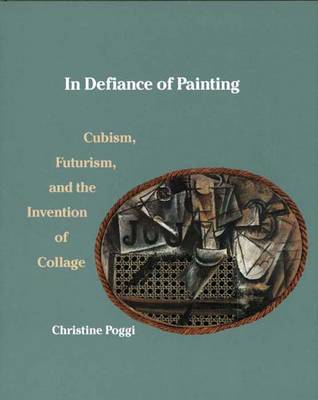Yale Publications in the History of Art
1 total work
The invention of collage by Picasso and Braque in 1912 was a turning point in the development of Cubism and Futurism and a significant innovation of 20th-century art. Collage has traditionally been viewed as a new expression of modernism, one allied with modernism's search for purity of means, anti-illusionism, unity and autonomy of form. This book - in its study of collage and its relation to modernism - challenges this view. Christine Poggi argues that collage did not become a new language of modernism but a new language with which to critique modernism. She focuses on the ways Cubist collage - and the Futurist multimedia work that was inspired by it - undermined prevailing notions of material and stylistic unity, subverted the role of the frame and pictorial ground and brought the languages of high and low culture into a new relationship of exchange. Poggi discusses the theory and history behind the invention and early practice of collage, focusing first on the Cubists and then on the Futurists.
Moving between the verbal and visual arts and between French and Italian traditions, she explores a number of related pictorial and poetic innovations: collage, "papier colle", constructed sculpture, Futurist "parole in liberta" and Apollinaire's "calligrammes". Poggi provides insights into the differences between the ways Cubists and Futurists questioned and subverted traditional genres and forms of expression. At the same time she shows how both groups made important contributions to the spirit of invention that prevailed before World War I.
Moving between the verbal and visual arts and between French and Italian traditions, she explores a number of related pictorial and poetic innovations: collage, "papier colle", constructed sculpture, Futurist "parole in liberta" and Apollinaire's "calligrammes". Poggi provides insights into the differences between the ways Cubists and Futurists questioned and subverted traditional genres and forms of expression. At the same time she shows how both groups made important contributions to the spirit of invention that prevailed before World War I.
